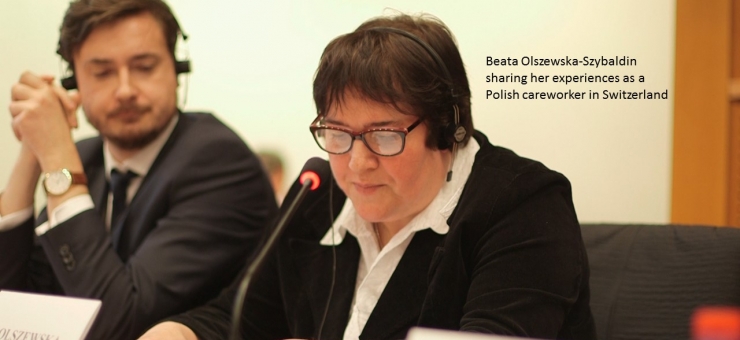What is the future of care in Europe?

A landmark roundtable on the future of the Care sector took place last Wednesday at the European Parliament. Stakeholders from the whole sector were present, including care workers, companies, non-profits, user organisations and academics, to discuss the future of Europe’s care sector with MEPs and European Commission representatives.
The backdrop to this meeting is the unprecedented and rapid change Europe is seeing in care service delivery in long term and home care for the elderly, care for the disabled, children, and more. An increase in aging populations, financial demands on working families, a reliance by governments on the private and not-for-profit sectors to play an ever-increasing role in the industry, as well as changes to the methods of delivery of care services, are all having a dramatic impact. For the sector, it means a long term structural supply shortage of care workers with a one million long term care worker shortage predicted by 2020 according to the European Commission. For service users this means uncertainty and fear about the future. For potential workers in the sector, they see low paid precarious jobs without a future. The main message from all stakeholders present was that Europe faces a crisis unless change is made to the way care is funded and prioritised in our society – a new plan and a new vision is needed.
At the event carers spoke of their pride in working hard to support some of society’s most vulnerable, but at the same time facing impoverished working conditions, zero hours contracts, a lack of standardised training, and some of the lowest pay rates across Europe. It is not hard to see why the sector is failing to recruit the numbers needed and runs the risk of failing our communities.
‘I get paid 30-50% less than a Swiss care worker for doing the same work’ said Beata Olszewska-Szybaldin, a Polish care worker in Switzerland highlighting the double standards workers face across Europe with qualifications in one country not being recognised in another. This unacceptable exploitation comes at a time when a migrant workforce could make the difference in meeting Europe’s current and future care needs.
UNI Europa Regional Secretary Oliver Roethig said: ‘We must tackle workforce shortages within the European care sector and raise the quality of service provision through the promotion of higher wages and conditions. Everyone benefits from these reforms – service users, family members, workers and our communities. By contrast, an underpaid, overworked, insecure, exploited and highly transient workforce exposes an already-underfunded sector to further risks of degradation of quality service provision. ‘
The highlighted rapid changes mean that fast and comprehensive responses are required by EU decision makers – the UNICARE group of unions within UNI Europa has developed a Platform putting forward a vision for the Future of Care in Europe (available here and video here) to help with that. The vision calls for:
Social Investment not Austerity
Quality Jobs for Quality Care
Empowering Migrants
Supporting Skills and Innovation
Read the full UNICARE Europa’s report on the Future of Care in Europe here
Watch our new video of care workers’ experiences the sector here

